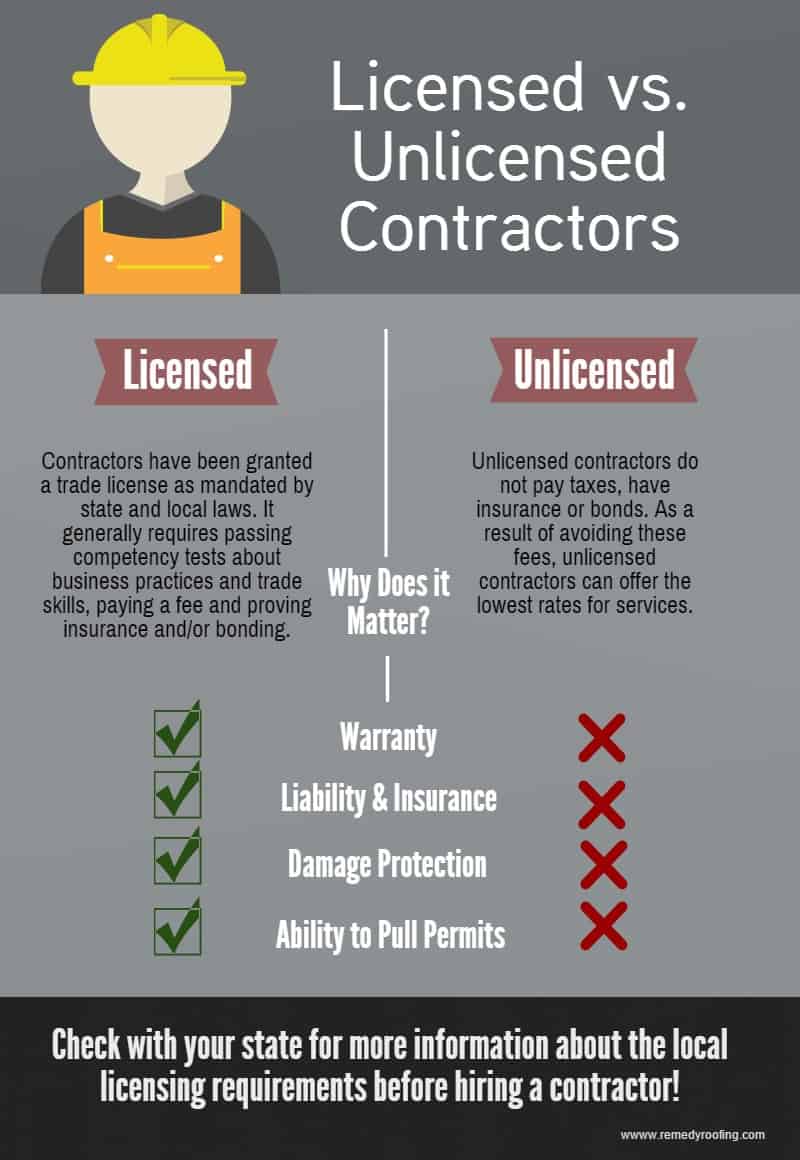Hiring an unlicensed contractor
Hiring an unlicensed contractor can lead to a range of risks and potential problems. Here are several reasons why you should never hire an unlicensed contractor:
Lack of Qualifications and Competence: Unlicensed contractors may not have the necessary qualifications, training, or experience to perform the work properly. They may lack knowledge of building codes, industry best practices, and safety standards. This can result in subpar workmanship, shoddy construction, and potential safety hazards.
Legal and Regulatory Compliance: Licensed contractors are required to meet specific legal and regulatory requirements. They must adhere to building codes, obtain permits, and follow proper procedures to ensure compliance with applicable laws. Unlicensed contractors often bypass these requirements, putting you at risk of fines, penalties, and complications with authorities.
Limited Consumer Protection: Working with an unlicensed contractor reduces your legal protections and recourse in case of disputes, poor workmanship, or property damage. Licensed contractors typically provide warranties or guarantees for their work, offering you greater peace of mind and potential recourse if something goes wrong.
Liability and Insurance Concerns: Licensed contractors typically carry liability insurance, protecting you from potential damages or accidents that may occur during the construction process. Unlicensed contractors often lack adequate insurance coverage, leaving you financially vulnerable if property damage or injuries occur on your premises.
Unreliable and Unprofessional Behavior: Unlicensed contractors may exhibit unprofessional behavior, such as failure to show up on time, inconsistent communication, or not completing the work as promised. This can lead to project delays, frustration, and stress.
Lack of Recourse for Poor Workmanship: If you are dissatisfied with the quality of work or encounter issues after the project is completed, unlicensed contractors may be difficult to track down or hold accountable. You may face challenges in seeking remedies or rectifying the problems without legal recourse.
Safety Risks: Construction work involves inherent risks, and unlicensed contractors may not prioritize safety protocols or possess the necessary knowledge to ensure safe practices. This can put you, your property, and workers at risk of accidents, injuries, or property damage.
Limited Access to Reliable References and Reviews: Unlicensed contractors may not have a track record of satisfied customers or reliable references. It can be challenging to assess their reputation, past work quality, or reliability. On the other hand, licensed contractors often have established reputations, customer reviews, and references that you can use to evaluate their credibility.
Choosing a licensed contractor provides reassurance that you are working with a qualified professional who meets legal and industry standards. It helps protect your investment, ensures proper construction practices, and reduces the risks associated with substandard work or unscrupulous behavior.



Comments
Post a Comment